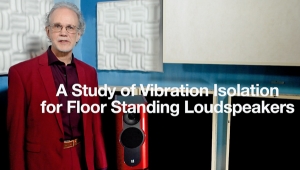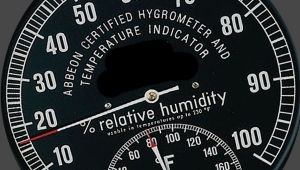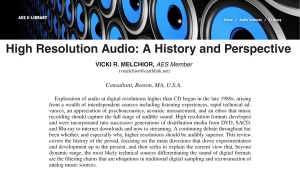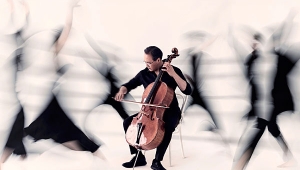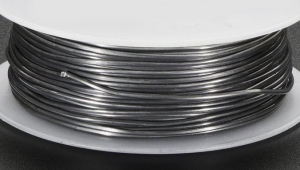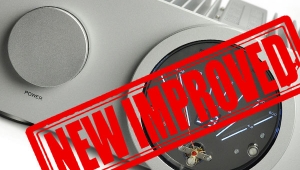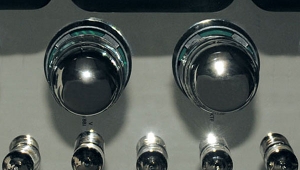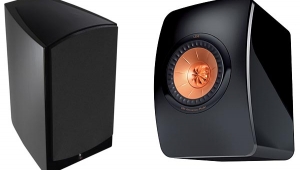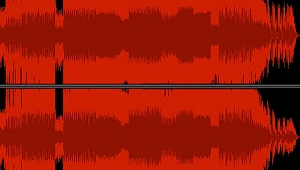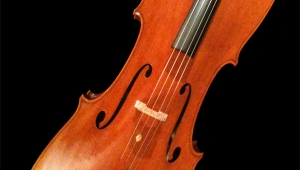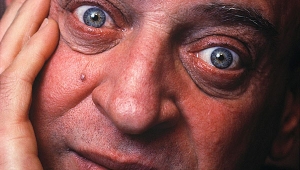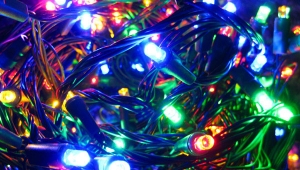| Columns Retired Columns & Blogs |
Reviews, "Recommended Components," & Metaphysics Page 2
Metaphysics to the rescue? Maybe. One way to avoid Popper's roadblock is to base your new law on a metaphysical intuition—something like, "God is subtle, but He insists that snaws be white." In that case, your observations of these birds don't have to support any logical leaps. They simply count as evidence that your law, now resting on your metaphysical convictions, is true. It makes a big difference whether or not you reach for metaphysics. Suppose that, while you're at the podium in Sweden thanking the Nobel Foundation for recognizing your pathbreaking research, there's a commotion in the audience. Someone is shouting:
"Stop, stop! This man does not deserve the Nobel Prize. I've discovered a blue snaw!" Those who resist the lure of metaphysics would simply have to back down.
"Oh. I see. Well, thank you all very much for the dinner. Those meatballs are delicious. I mean... were delicious."
But those members of the metaphysical majority would resist:
"Ladies and Gentlemen, that can't be! There are no blue snaws, only white ones. After all, it's a law (thanks to my insights) that all snaws are white. A blue snaw? That's impossible. Nature doesn't break laws."
Whatever this guy saw, it wasn't a snaw. Or he was hallucinating or wearing blue glasses or something. Like the theoretical physicist who reverses a sign and expects the clockwork of the world to reverse, or who insists that a beautiful theory must be true, many forget that nature does not necessarily conform to our intuitions. It's best to avoid metaphysics altogether and admit defeat in the face of the induction problem. Popper insisted that successful scientific laws are not necessarily true—instead, we should think of them as not yet falsified. In fact, Popper used some of Darwin's universal acid when developing his theory of science (called "falsificationism").
Accepted, reliable, scientific laws are like living species. They've managed to survive so far without, as it were, going extinct. But that doesn't mean they won't. Richard Lehnert's advice not to use the present tense in equipment reviews solves the induction problem in the same way. If the speakers I'm reviewing sounded great for several days in a row, what can I accurately report? Simply that in the context of my review "they sounded great." But if I write, "these speakers sound great", I'm making a huge, inductive leap and claiming to know how they will perform for other people, in other places and times, with different components, with other recordings and kinds of music. The statement is equivalent to a natural law that holds that it is impossible, under any circumstances, for the speakers to sound bad.
Why would a reviewer make such sweeping claims? Seduction by metaphysics: I might reason that they sound great, day after day, precisely because they have a deep, unchanging, metaphysical property—the property of sounding great. But this is just asking for trouble. There may be a blue snaw and there may be an audio system that will make these speakers sound not so great. Just say "no" to metaphysics.
Does this Popperian advice give in to the dark forces of subjectivity and anti-science that lurk within high-end audio? Although one won't impress many scientists by insisting that scientific laws cannot be proven true, using the past tense to write (and even to speak) about how components performed will put us more in step with workings of science. Recently, evidence was reported that Hubble's Law, which holds that distant astronomical bodies move away from each other at speeds proportional to their distances, might be false. (New York Times, Ideas and Trends, Sunday, March 8, 1998) Since this law is one foundation of the widely accepted "big-bang" model of the universe, many scientists probably received the news with skepticism. Some, leaning on metaphysical crutches, may insist that the law reaches into the very fabric of reality and will never turn out to be wrong. But they should take a tip from wise Lehnertes—when evaluating laws of nature, and when describing how components perform, it's best just to play it by ear.
"Recommended Components" is another corner of audiophilia that could use some metaphysical housecleaning. As a summation of reviewer's opinions, it has no more claim to truth than any of its parts. Still, many take those categories and rankings to be a metaphysical grid that is tightly fastened to the realities of audio. Did your system sound better yesterday than it did today? Rest assured, it's not because our editors in Santa Fe hit the "delete" key, changed a B to a C, and altered the metaphysical properties of your components.
- Log in or register to post comments
